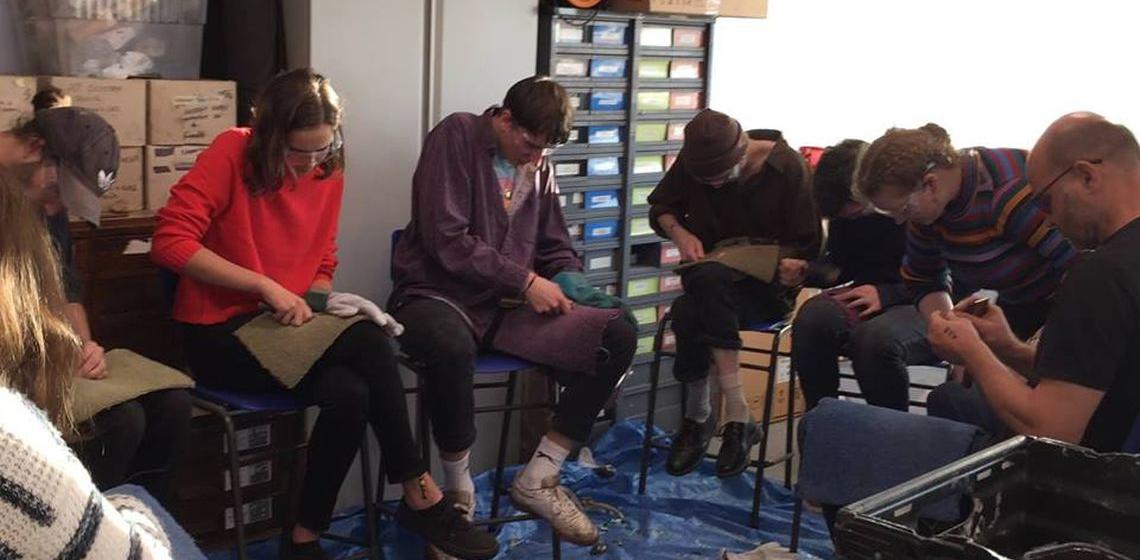
The Experimental Archaeology Group was established in 2017 to create the opportunity for both staff and students to get hands-on experience of making, using and researching the artefacts and material culture that they learn and teach about within degree units.
Since forming, the group has explored prehistoric and historical ethnographic knapping techniques, prehistoric bone and antler working, organic cordage from a range of plant fibre sources and willow work, including basketry and fish traps.
These sessions provide us as archaeologists with a new understanding of certain aspects of material culture, including time, skill, knowledge, effort and sensorial experience, all of which expand our understanding of the past.
These activities are used within taught units to enhance student learning, including experimental archaeology assessment. Most recently, our third-year students have been making Mesolithic barbed antler points to re-examine their significance in the British Mesolithic.
The Experimental Archaeology group also currently hosts undergraduate dissertation researchers, including projects examining prehistoric cordage and medieval weaponry, and staff research projects, including British Neolithic Rock Crystal Technologies and our Prehistory to Primary School outreach project.
As Experimental Archaeology at The University of Manchester continues to grow, it will provide new and engaging content for a wider range of taught units, as well as offering a wider range of activities and expertise to students, and the facilities and opportunity for anyone within the University who wants to undertake experimental archaeology research.
Text source: University of Manchester
